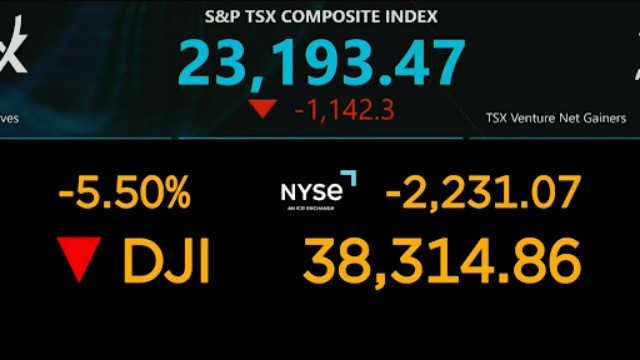
According to Statistics Canada, the household savings rate has risen to 7.2% after adjusting for seasonal factors. Desjardins economist Randall Bartlett suggests that this reflects people being cautious with their finances, as many are preparing for potential increases in mortgage payments. (R.J. Johnston/Toronto Star via Getty Images)
The amount of disposable income Canadians are using to manage their debts is expected to hit new records in the coming months, driven by mortgage renewals and slowing wage growth, according to economists from several major banks. A recent Statistics Canada report covering the second quarter of 2024 shows the debt service ratio (DSR)—a key measure of the portion of income devoted to debt repayment—rose to 14.97%. This is just below the all-time high of 15.03%, recorded in the first quarter of 2019.
Although the DSR has remained close to this record since early 2023, experts are concerned that it will soon surpass it. BMO economist Shelly Kaushik pointed out that mortgage renewals at higher interest rates are putting upward pressure on household debt payments. In addition, a weakening labour market is limiting wage growth, making it harder for Canadians to keep pace with rising costs. Kaushik said that it wouldn’t be surprising if the DSR soon reached new highs.
RBC economist Carrie Freestone agreed, stating that although the Bank of Canada’s anticipated interest rate cuts in the coming year may ease some of the pressure on debt repayments, current high rates will continue to push debt payments up. Many homeowners are facing the prospect of renewed mortgages with significantly higher payments, a situation likely to continue into 2025.
On a more positive note, the report also showed an increase in household savings, with the savings rate reaching 7.2% on a seasonally adjusted basis. This rise suggests that Canadians are preparing for the financial hit from higher mortgage payments. Desjardins economist Randall Bartlett pointed to this savings increase as a sign of financial prudence among households expecting rising expenses.
However, the financial stress is not evenly distributed. While many Canadians are increasing their savings, others are turning to credit cards to make ends meet. Recent data from Equifax Canada revealed that the average credit card balance among Canadians is at its highest level in 17 years, signalling growing dependence on credit for everyday expenses.
The financial picture isn't entirely bleak. Statistics Canada’s data also shows that household net worth hit a record high of $17.01 trillion in the second quarter, with assets surpassing $20 trillion for the first time. The average household net worth remained steady at just over $1 million, but this figure does not reflect the wide disparity in wealth across the country. According to the report, the wealthiest 20% of households hold more than two-thirds of Canada's total wealth, while the bottom 40% account for just 2.8% of the total, with an average net worth of only $70,356.
As Canadians face rising debt payments, particularly from mortgage renewals, and continued reliance on credit, financial stress is growing. Economists believe that while some households are preparing for the impact by increasing savings, many are feeling the strain of higher costs and wage stagnation, making the road ahead challenging for many.















